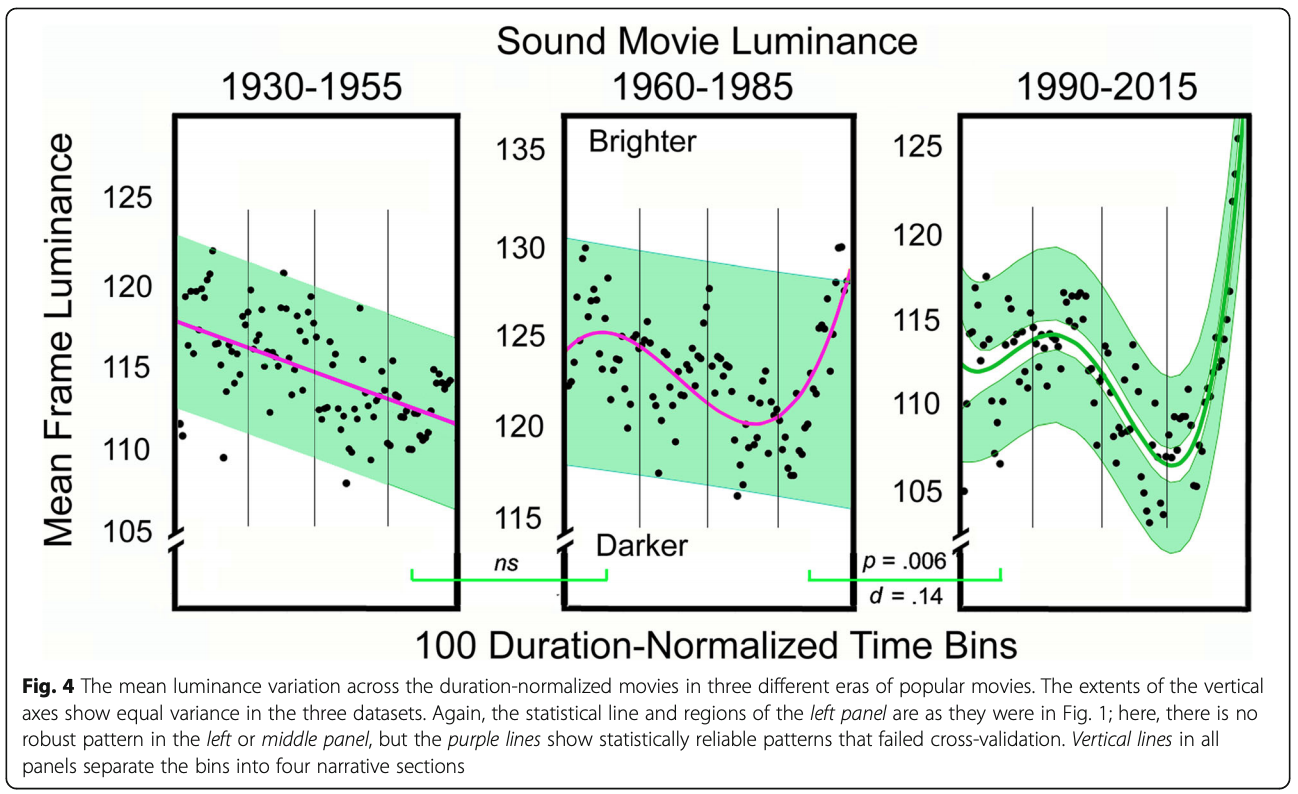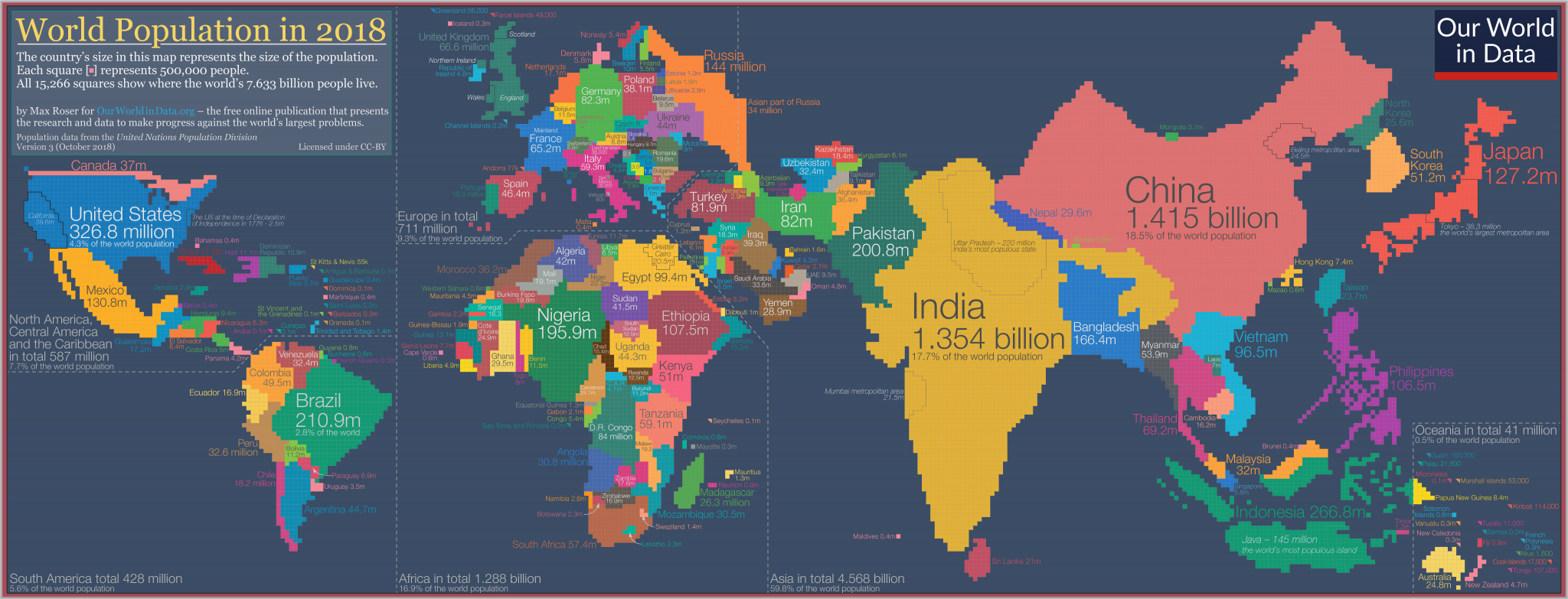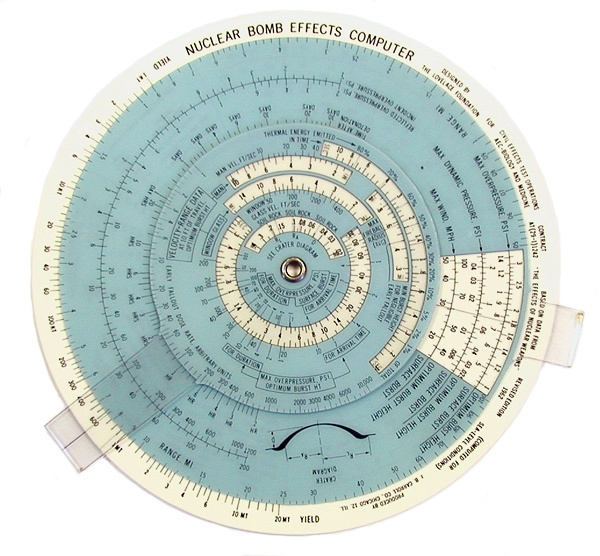Things tagged bestof:
The evolution of pace in popular movies
James E. Cutting (name checks out):
Movies have changed dramatically over the last 100 years. Several of these changes in popular English-language filmmaking practice are reflected in patterns of film style as distributed over the length of movies. In particular, arrangements of shot durations, motion, and luminance have altered and come to reflect aspects of the narrative form.
Japan's Hometown Tax
The Japanese employment market has a curious feature: there are regions of Japan with extremely high economic productivity (such as Tokyo, Osaka, and Nagoya, but for the purpose of this issue think “Tokyo” and you won’t be wrong) and regions with low economic productivity (substantially everywhere else). This counsels that a young person born and educated in e.g. Gifu move to Tokyo after graduation to earn a living.
Many, many do. While Japan’s overall population is declining, Tokyo’s increases by about 100,000 people per year.
Educating children is incredibly expensive. The regions are quite annoyed that they pay to educate their children but that Tokyo reaps all the benefits. This state of affairs has continued for decades.
But Japan has a policy response for it, and it is sort of beautiful. Called ふるさと納税 (Furusato Nouzei or, roughly, the Hometown Tax System) [ … ]
Via Matt Levine.
The map we need if we want to think about how global living conditions are changing
Max Roser at Our World in Data:
To show global data it is convenient to use a map. But despite the popularity and familiarity of world maps, they can mislead our understanding global living conditions.
Maps are made for a different purpose; they show us where the world’s land masses are. They don’t show us where the people are.
If we want to show where the world’s people are we need a population cartogram, a geographical presentation of the world where the size of the countries are not drawn according to the distribution of land, but according to the distribution of people.
So I spent the last few weekends making this cartogram for the world population in 2018.
How the Other Half Learns
Oren Cass at the Manhattan Institute:
America’s education system, from kindergarten through the state university, is designed to produce college graduates. Those who stop short of at least a community-college diploma are widely regarded as failures, or at least victims of a failed system. Yet most Americans fall into this category, and current trends offer little hope for improvement. Politicians and policymakers are finally paying attention to this population—which, roughly speaking, comprises the working class—and calls for more vocational education and apprenticeships have become fashionable. But a more fundamental reordering of the nation’s misshapen educational infrastructure is necessary if alternatives to the college pipeline are to take their rightful place as coequal pathways to the workforce.
Via @pkedrosky (who deletes his old tweets, so nothing to link to).
The Quiet Americans Behind the U.S.-Russia Imbroglio
Keith Gessen in The New York Times (use the archive link to bypass the paywall):
During two decades, on and off, reporting in Russia and the post-Soviet states — in the turbulent ’90s, the wealthy but depressing aughts and finally during the eruption of violence in Ukraine — I occasionally heard people talk about how “the Americans” wanted this or that political outcome. The events in Ukraine demonstrated, or seemed to demonstrate, that behind the visible facade of changing presidents and changing policy statements and changing styles, “the Americans” were actually a small core of officials who not only executed policy but also effectively determined it. The continuing wars in Ukraine and Syria, the apparent Russian campaign of targeted assassinations on foreign soil, the widening gyre of sanctions and countersanctions and the still-festering question of Russian meddling in the 2016 election have made for the worst relations between the two countries since the 1980s. Understanding how to get out of this mess will require understanding how we got into it. There may be no better place to start than with the people inside the American government who have been working on the subject since 1991 — the Russia hands.
And insights:
As for Russia, it’s a threat that needs to be handled, not exaggerated. “We have to talk to them,” Oliker says. “If we don’t talk to them, things are going to get a lot worse. Yes, they hacked our election. Did they invade Ukraine? Yup, they did that. But we talk to countries that do bad things all the time. We have to talk to them, and as we’re talking to them, we have to understand that they don’t think they’re evil. I was testifying on the Hill not long ago, and I was saying, ‘The Russians think they’re acting defensively.’ And the senators were like, ‘But we’ve explained to them over and over that we’re not a threat.’ Like, are you serious?”
Zwack, the retired brigadier general who once waited for the Soviets to break through the Fulda Gap and now teaches at the National Defense University, agrees. “Short of a shooting war, you have to find bridges,” he says. “Some people say, ‘It’s not business as usual with the Russians.’ But it’s never business as usual with the Russians! They’re the one nation on the planet that, on a bad day — they’ll go away, too — but they can take us off that planet.
The Silurian Hypothesis
Gavin A. Schmidt and Adam Frank with a corker of a paper:
If an industrial civilization had existed on Earth many millions of years prior to our own era, what traces would it have left and would they be detectable today? We summarize the likely geological fingerprint of the Anthropocene, and demonstrate that while clear, it will not differ greatly in many respects from other known events in the geological record. We then propose tests that could plausibly distinguish an industrial cause from an otherwise naturally occurring climate event.
Why Earth's History Appears So Miraculous
Fairly psychedelic musings on The Great Filter by Peter Brannen in The Atlantic:
It was hard times for the bomber pilots that floated over Europe, their planes incinerating cities below, like birds of prey. Even as they turned the once-bustling streets beneath to howling firestorms, death had become a close companion to the crews of the Allied bombers as well. In fact, surviving a tour with the Bomber Command had become a virtual coin flip. While their munitions fell mutely from bomb bays, an upward sleet of fire from smoldering city grids and darkened farmland shot the planes out of the sky like clay pigeons. For recruits encountering the freshly empty bunk beds of dead airmen, morale was sapped before they could even get in the cockpit. Hoping to slow this attrition, Allied officers studied the pattern of bullet holes in returning aircraft for vulnerable parts to reinforce with armor.
It was natural to think that the bombers needed more armor where (it appeared) they were taking the most bullets. But the Hungarian-born mathematician Abraham Wald, and his colleagues at the Statistical Research Group at Columbia University, had a novel, if counterintuitive, prescription. Don’t protect the planes where they were taking the most damage, Wald said. Armor the planes where there were no bullet holes at all.
“You put armor where there are no holes, because the planes that got shot there didn’t return to the home base,” says Anders Sandberg, a senior research fellow at University of Oxford’s Future of Humanity Institute. “They crashed.”
The holes didn’t show where returning planes were likely to get hit, but only what it was possible for later observers to see. This is known as an observer selection effect, and the same sort of bias might apply not only to perforated planes, but to whole worlds as well.
What if, when we looked at our own planet’s past, we saw a similar pattern? After all, there are 100-mile impact craters on our planet’s surface from the past billion years, but no 600-mile craters. But of course, there couldn’t be scars this big. On worlds where such craters exist, there is no one around afterward to ponder them. In a strange way, truly gigantic craters don’t appear on the planet’s surface because we’re here to look for them. Just as the wounds of the returning planes could reflect only the merely survivable, so too for our entire planet’s history. It could be that we’ve been shielded from these existential threats by our very existence.
“Observer selection effects are really the kind of effects where the data you get is going to be dependent, in some sense, on survival, or that you as an observer exist,” Sandberg says. “Now this gets really interesting and scary when we apply it to our own survival.”
You Can't Have Denmark Without Danes
Megan McArdle in Bloomberg:
Denmark had been on my mind since it surfaced so oddly during the 2016 U.S. presidential campaign as a challenge to the American faith that individualism is the best engine of social and economic improvement. Then came the election of President Donald Trump, which did nothing to lessen my curiosity about a place that seemed immune from the stresses that were tearing U.S. society apart.
(I love Bloomberg headlines, if you don’t care to read the article, you know all you need to know from the headline …)
Frank Bretschneider Boiler Room Berlin Live Set
Frank Bretschneider: One of the key activists of the electronic music underground in former East Germany, Frank Bretschneider has continued to revolutionize electronic music as part of raster-noton for the past 20 years. Today he presents his brand new album!
On Facebook
But what is the Fourier Transform?
3Blue1Brown:
An animated introduction to the Fourier Transform, winding graphs around circles.
The hard road of free markets
John Cochrane lays down some wisdom:
The sad paradox of free markets is that free markets do not need people to understand them to work. But democracy does require voters to understand how things work.
How Trust Shapes Nations' Safety Rules
Veronique Greenwood in The Alantic:
When I moved to China nearly two years ago, one of the first things I bought was a bicycle. I live on a university campus, where everyone rides, and the bike was cheap: $17 for an ancient Five Rams cruiser, with a lively color scheme of teal and rust. I used to cycle to work when I lived in New York, dodging tourists and threading in between delivery trucks. But the moment I pulled out onto a street in China, it became clear that this was going to be a different experience.
Reminds me of an argument I got into with someone over the asinine Seattle bike helmet law. People think our (US) way is the only way to do things despite the fact that many people in the world do things the other way, and seems to go fine for them. Read this and absorb some of that. Stepping back, where we choose (have been taught) to place our trust is kinda my focus these days. Why do we want to place that trust in the government, despite the evidence of better systems to trust? No reason the FDA needs to be a government org, your doctor and insurance company could agree on a more able org. Same for food safety, occupational licensing, etc.
Politicians reject evidence that conflicts with their beliefs
Casper Dahlmann and Niels Bjørn Petersen in the WaPo:
We conducted a survey of 954 Danish local politicians. […] We then divided the politicians into two groups. One group got the data — but without any information as to whether the school was public or private. The schools were just labeled “School A” and “School B.” The other group got the exact same data, but instead of “School A” and “School B,” the schools’ titles were “Public School” and “Private School.”
If politicians are influenced by their ideologies, we would expect that they would be able to interpret the information about “School B” and “School A” correctly. However, the other group would be influenced by their ideological beliefs about private versus public provision of welfare services in ways that might lead them to make mistakes.
This is exactly what we found. Most politicians interpreting data from “School A” and “School B” were perfectly capable of interpreting the information correctly. However, when they were asked to interpret data about a “Public School” and a “Private School” they often misinterpreted it, to make the evidence fit their desired conclusion.
Economics of AI
On 13-14 September, 2017, we held our inaugural conference in Toronto to set the research agenda on The Economics of AI.
Paper presentations are good, but holy shit the comments are amazing.
Check the conference site for the papers and slides.


